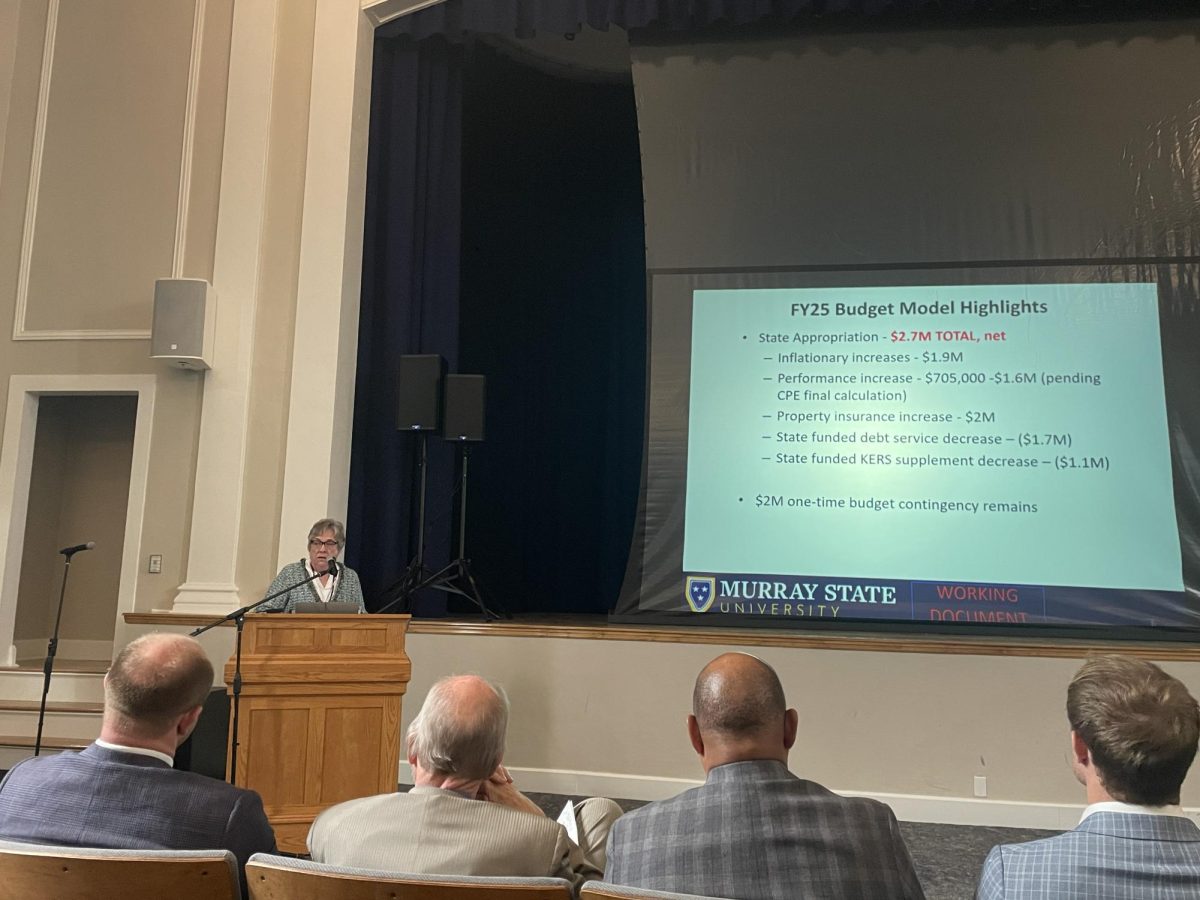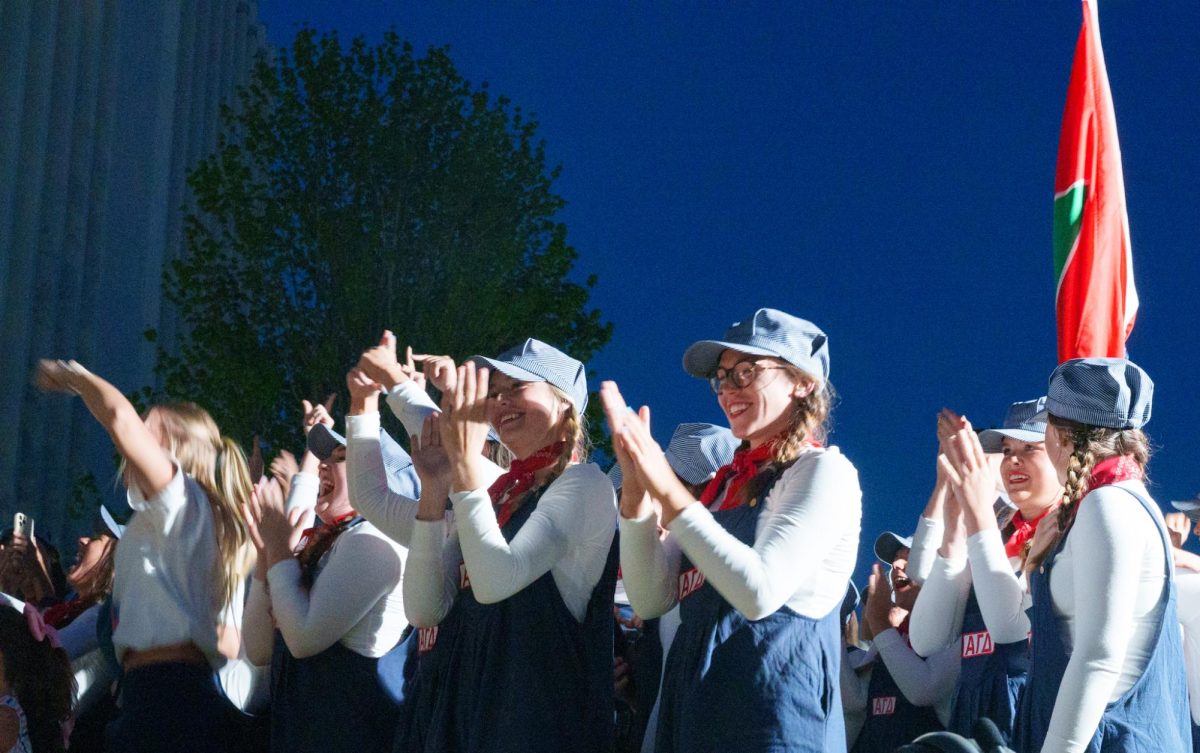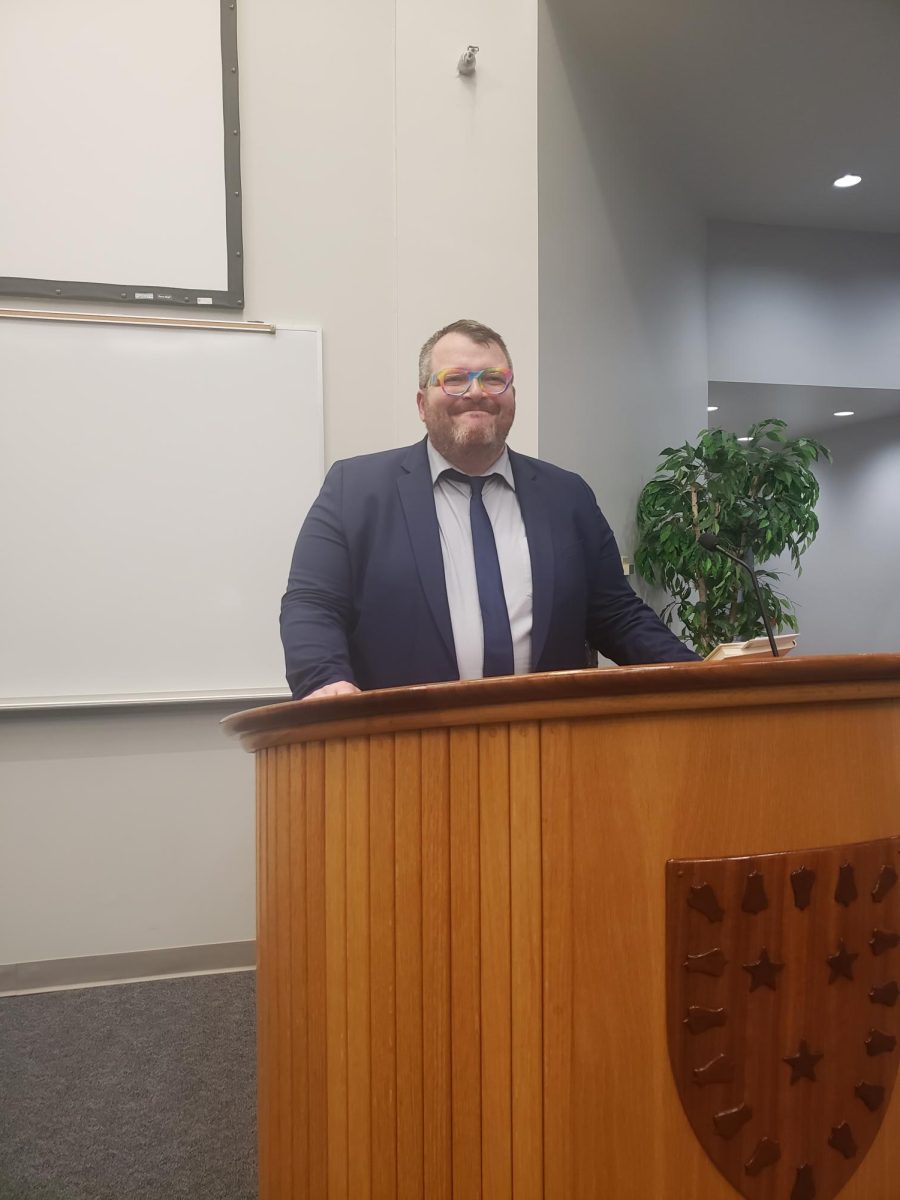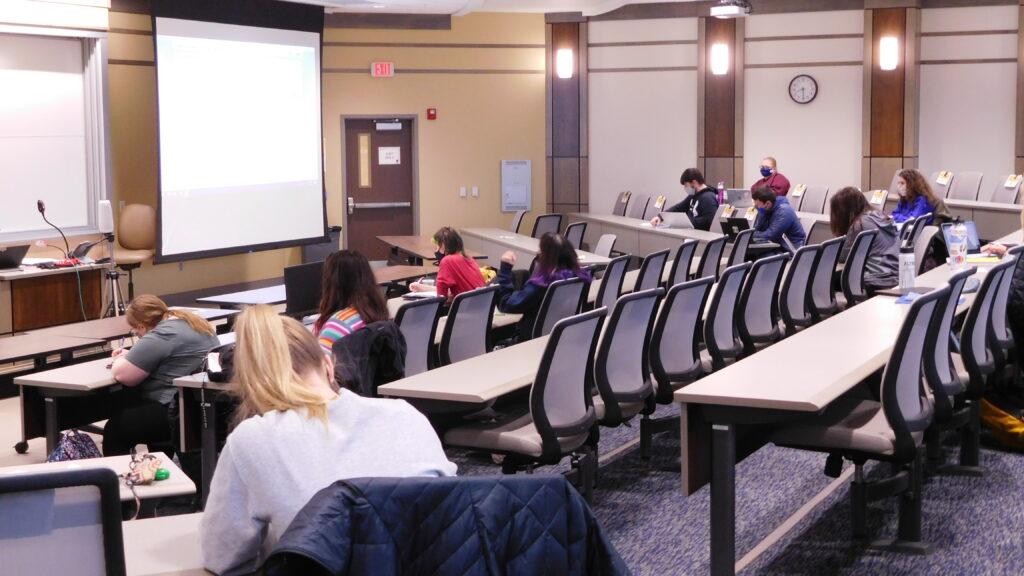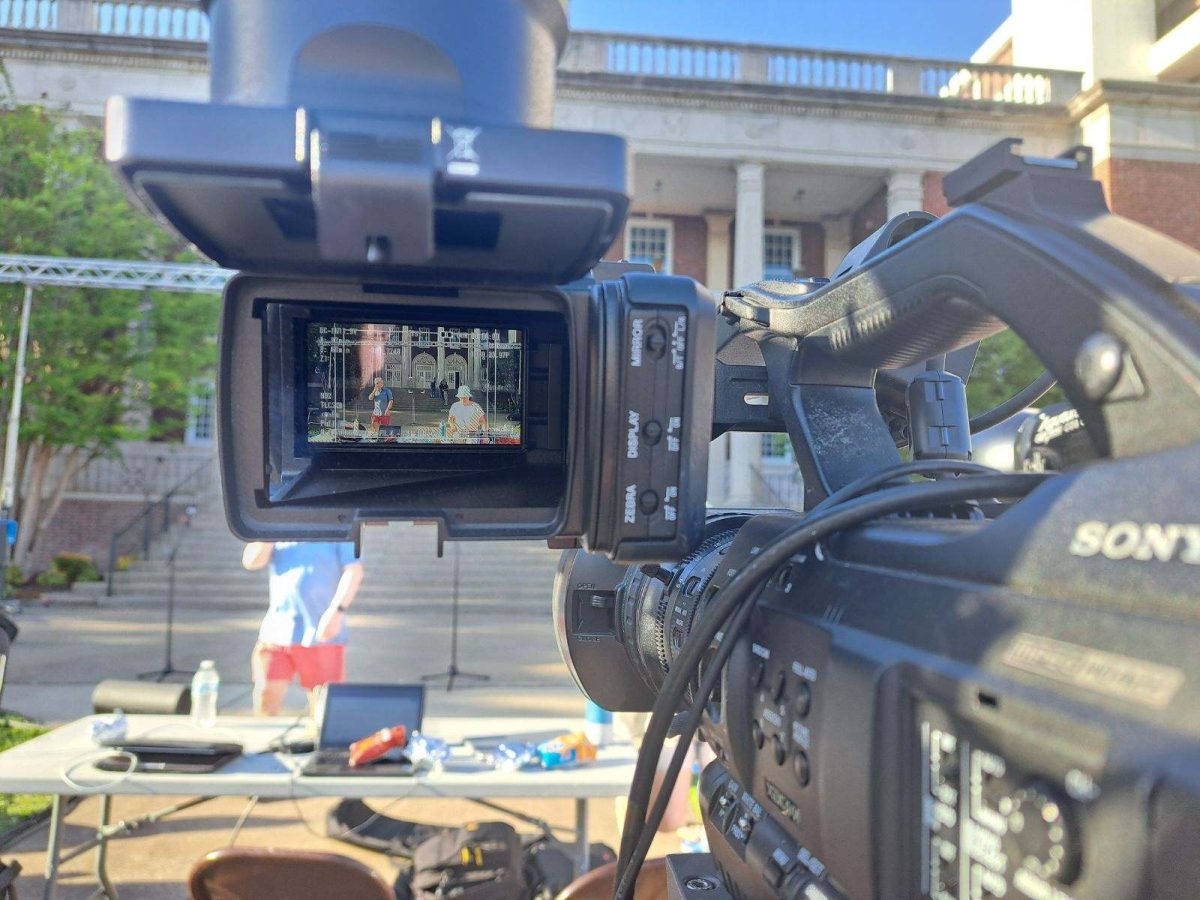Edie Greenberg
Contributing Writer
[email protected]
Students and professors are stressed out and searching for ways to relax, especially with the absence of a spring break.
With only two months left in the spring semester, students continue to have their schedules filled with a mixture of Zoom and in-person classes. Some students and professors are suffering from pre-existing mental health issues and are having a hard time as the strain of the pandemic adds to the challenges of a daily routine.
Many students are working one or more jobs, and some have families to support. Juggling work, school and family can be difficult in the best of circumstances. This strain of juggling challenges is particularly difficult for those who already struggle with their mental health.
Ray Horton, assistant professor of English, has been seeking treatment for anxiety and PTSD for the past few years. He said that he knows he is not the only one who feels like he has run into his own limitations, “like a brick wall,” this past year.
“Anxiety becomes much more difficult to manage when your daily routine reminds you constantly of the continued presence of a deadly virus,” Horton said.
While Horton is enjoying the time with his family and knows that he will miss spending time with his children, three-year-old Emersyn and six-month-old Avery, after school resumes in-person classes, he continues to struggle finding balance.
“Trying to balance teaching, research, and university service while working from home and caring for two small children during an unprecedented global health crisis has proven to be the most challenging ‘work-life balance’ situation of my career so far,” Horton said.
Television production instructor Chris Haynes said he is feeling more stress this semester when it comes to giving all of his students the best educational experience he can provide while also trying to be sensitive to their individual needs.
“Technology isn’t a magic fix. It’s not that there is anything inherently wrong with hybrid and Zoom classes, but there are going to be differences in the way instructors interact with and through those technologies,” Haynes said.
Haynes is using this semester’s experience to try to establish a positive, welcoming environment where his students are free to be themselves and create some interesting media content.
“Creativity and expression are good medicine,” Haynes said. “However, it doesn’t help that some of the processes of television and media production are greatly hindered by things that we need to do as responsible citizens during a pandemic.”
Gill Welsch, advertising instructor, said that it is harder for him to build relationships with students over Zoom or any other video conferencing technology.
“Interaction is much more limited, so I can’t get to know students as well as I would like,” Welsch said. “The only way that I can tell when a student may be having problems is when the student tells me. Then I can help the student contact people who can help.”
Peggy Whaley, director of Student Engagement and Success, said that she is trying to be kinder and gentler to herself and others she interacts with this semester. She says that it’s been a hard year, and we all need to be kind and patient with ourselves and others.
“Get out in the fresh air. Read a book, get a cup of hot chocolate with a friend, go for a walk, talk with someone about how you are feeling. Do something nice for yourself. Be kind to yourself and others and practice self-care,” she said.
Whaley attributes many factors to the stress students are feeling this semester.
“I feel COVID, isolation, Zoom fatigue, concern for their health and their family’s health and financial concerns have all caused a strain on students’ mental health and well-being this year,” Whaley said.
senior organizational communications major Mattie Miller, sees the benefits of having Zoom classes but has felt Zoom fatigue with prolonged time online.
“Zoom has honestly drained me,“ Miller said. “The increased use of technology is convenient but has resulted in me feeling tired after classes and a lack of motivation.”
Like many students and professors, Miller has felt lonely this semester while taking classes from home.
“This semester has put a particular strain on my mental health in the form of lack of contact with students. I have missed the times in the hallways of my classroom buildings connecting with students and professors,” Miller said.
Assistant professor of art history Antje Gamble said working from home is not where she is the happiest or most productive.
“For myself, transitioning all my classes online was a ton of work that was hard to manage, and the stress of it affected my mental health,” Gamble said. “I’m fairly extroverted, so losing out on both in-person teaching and losing out on seeing anyone not in my immediate household was particularly difficult.”
Gamble has tried to streamline her assignments and make them really straightforward in terms of expectations so that students who are already stressed don’t have to worry about understanding the instructions on her assignments.
Director of University Counseling Services Angie Trzepacz said the social isolation caused by all of the COVID-19 restrictions has increased many students’ feelings of loneliness and has disrupted their ability to make new friends on campus, resulting in more people feeling like they don’t really fit in and don’t really have the social support they need.
This social isolation and feelings of loneliness have also exacerbated many students’ struggles with anxiety and depression.
“Many people rely on structure and routine to help them organize their time, so working from home and attending class from their bedroom often interferes with people’s productivity levels, their motivation and their time management,” Trzepacz said.
Junior TV production major Joey Reynolds has had issues staying focused with hybrid classes and says that watching a Zoom lecture isn’t as effective as in person.
“It just seems like online classes are more stressful for me,” Reynolds said. “I don’t know if it’s time management problems or what, but they certainly haven’t helped my mind.”
Reynolds is not alone in this struggle. Junior nonprofit management major Duncan Sandlin said that he has found online classes non-conducive to a healthy learning environment.
“I don’t learn well online,” Sandlin said. “I have a class where in every session the instructor is constantly cutting in and out so much that the class often has to piece together the conversation.”
Sophomore journalism major Kati Wyant can see the benefits of going to therapy to help alleviate stress caused by demanding schedules.
Wyant said that she finds it stressful keeping up with classes that are hybrid, Zoom and in- person and not having spring break. She goes to therapy at least once a month just to vent and refresh and maintain a healthy mindset and personal growth.
“This will pass, maybe like kidney stones, but you’ve got to adapt so you don’t lose your mind,” Wyant said.
Wyant has also started using a meditation app called Insight Timer to force herself to block everything out for at least five minutes a day.
“I try to set times to be done with school. I’ll step away from my laptop and not check emails while I eat or go for a walk. School can take over my life, so lately, I’ve been fighting to make time to just feel human,” Wyant said.
On campus, there are many resources that are accessible for students, faculty and staff.
The food bank Racers Helping Racers is an invaluable resource for students experiencing food insecurity during the pandemic and other times as well.
The Counseling Center on campus has tried to provide counseling services to as many students as possible. They have also listed numerous self-help resources on their website, including relaxation techniques and lists of helpful mental health apps.
Racers Empower: Healthy Minds, Healthy Campus is a collaborative effort by students, staff and faculty members of Murray State to promote improved mental health and wellness on campus. Racers Empower will be hosting a book club in March and April over “The Boy, the Mole, the Fox, and the Horse” by Charlie Mackesy.
Students are also encouraged to utilize the Starfish Student Success Network to “raise their hand” and ask for help if needed.
A new $70,000 grant from the Kentucky Council on Postsecondary Education and the Office of Student Affairs and Enrollment Management will also use funds to address student mental health.
Don Robertson, vice president of Student Affairs and Enrollment Management, said 185 faculty and staff have registered for an eight-hour course that will help them to identify students who might require mental health services and to provide online resources.
“The Mental Health First Aid Training will result in more faculty and staff trained in how to recognize the signs of a student having a mental health issue and the knowledge about resources on campus to help the student,” Robertson said. “The training will enable faculty and staff to be more proactive and helpful to the students.”



